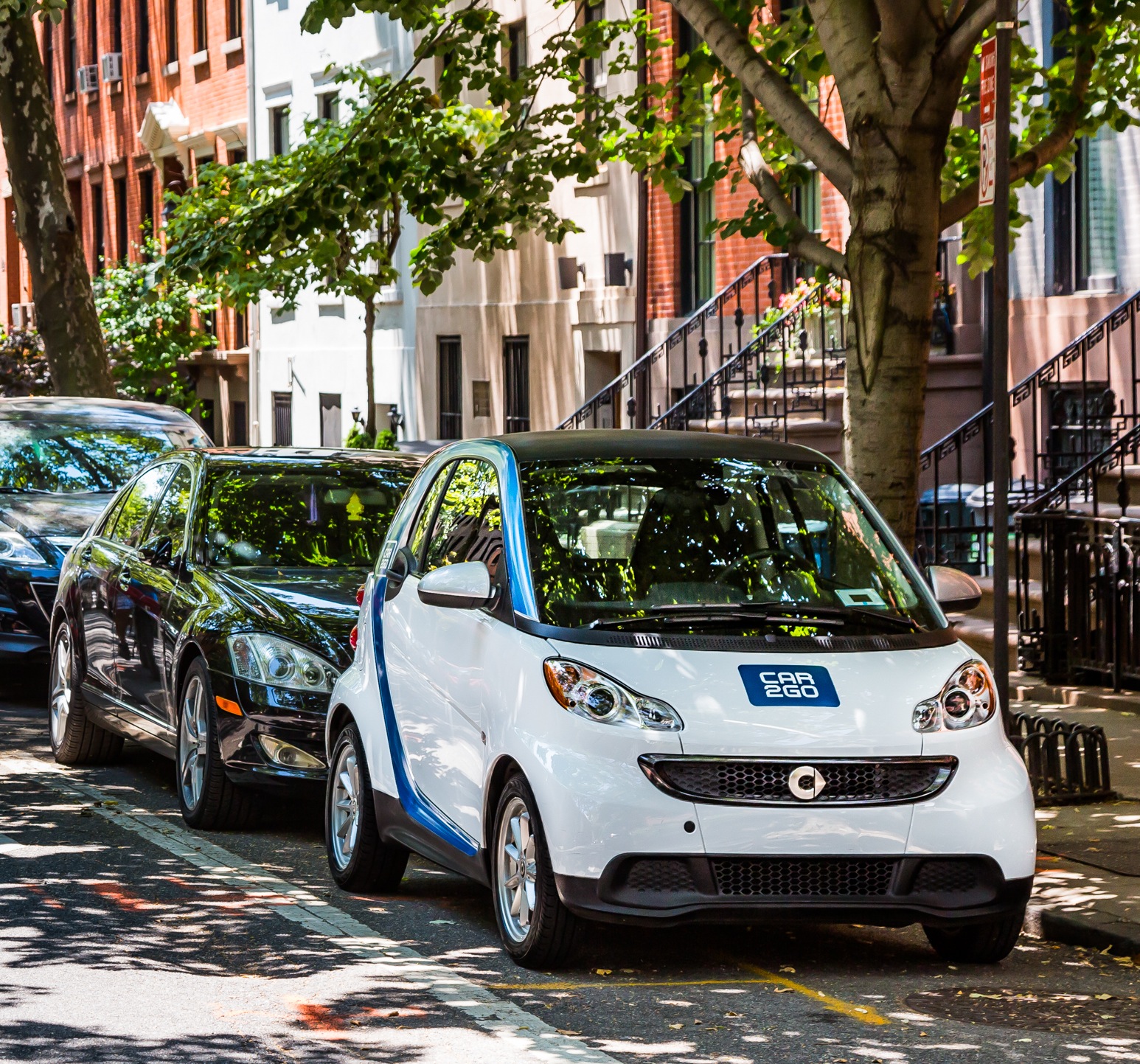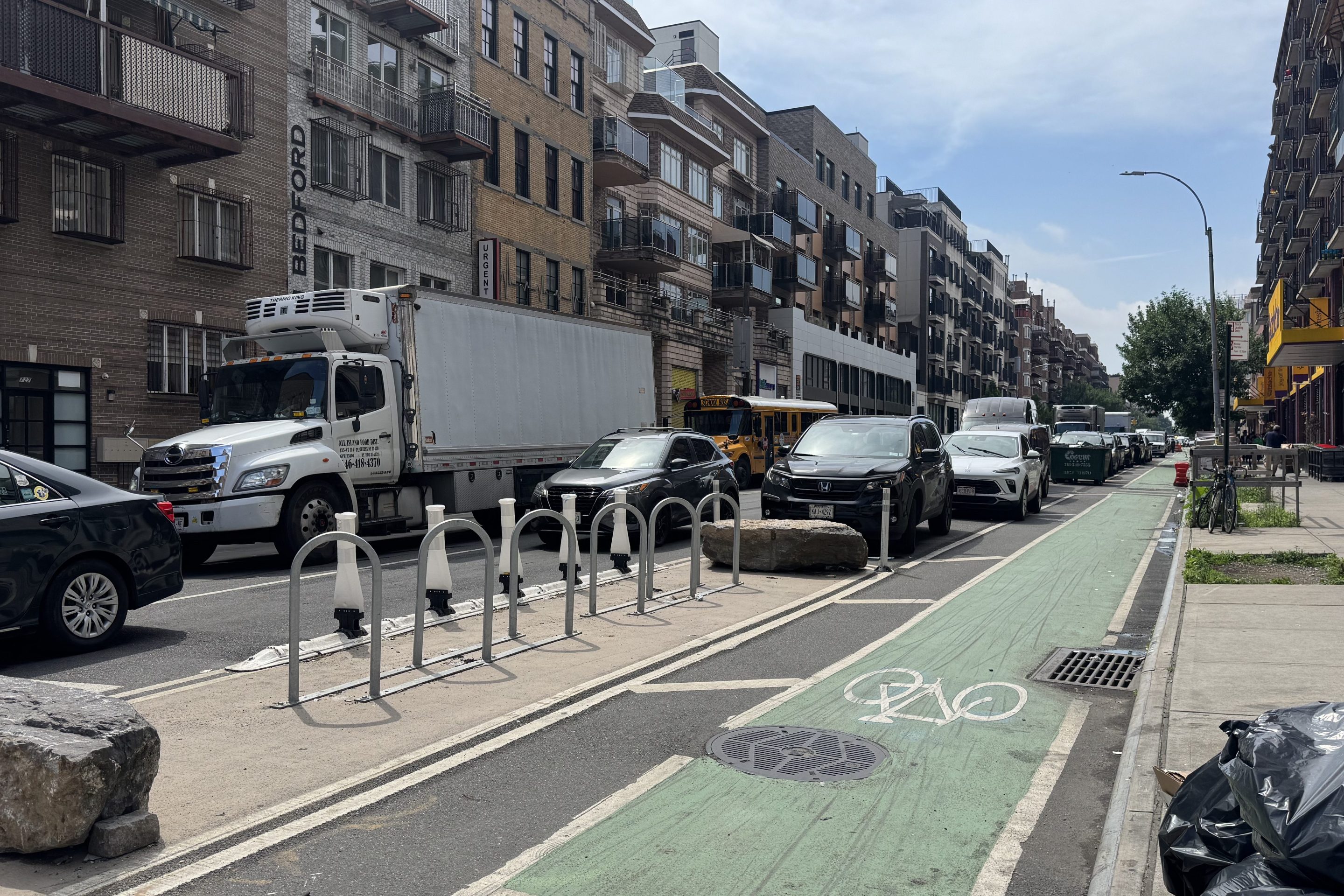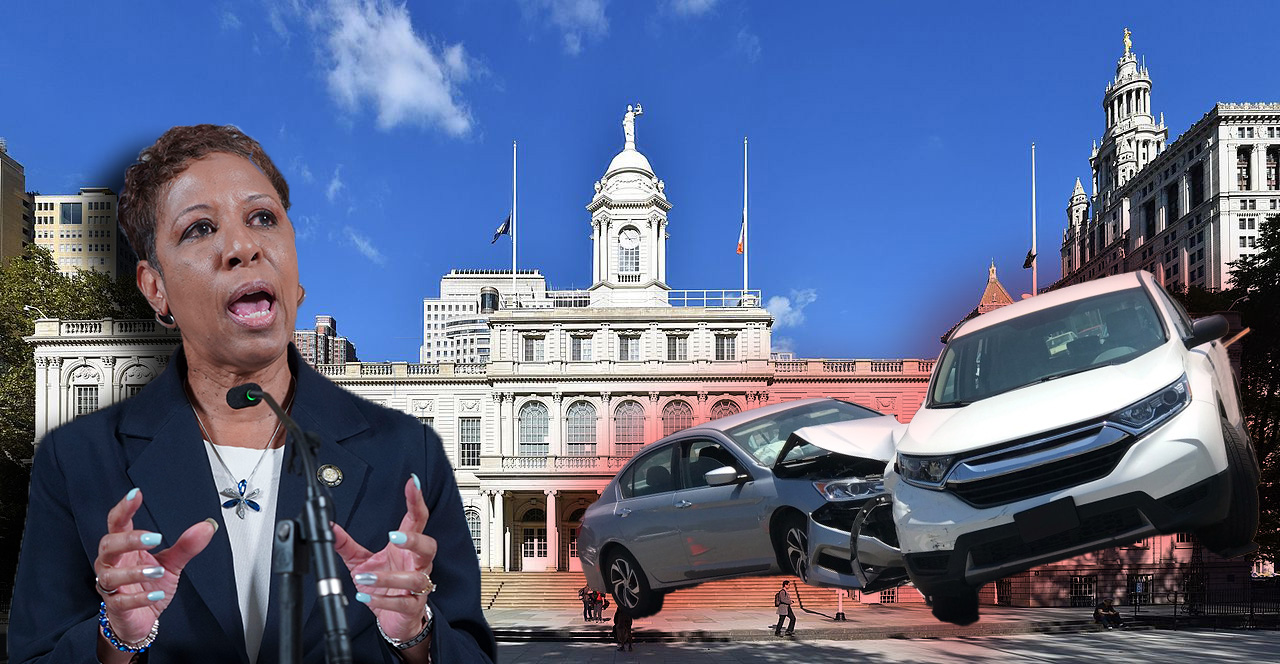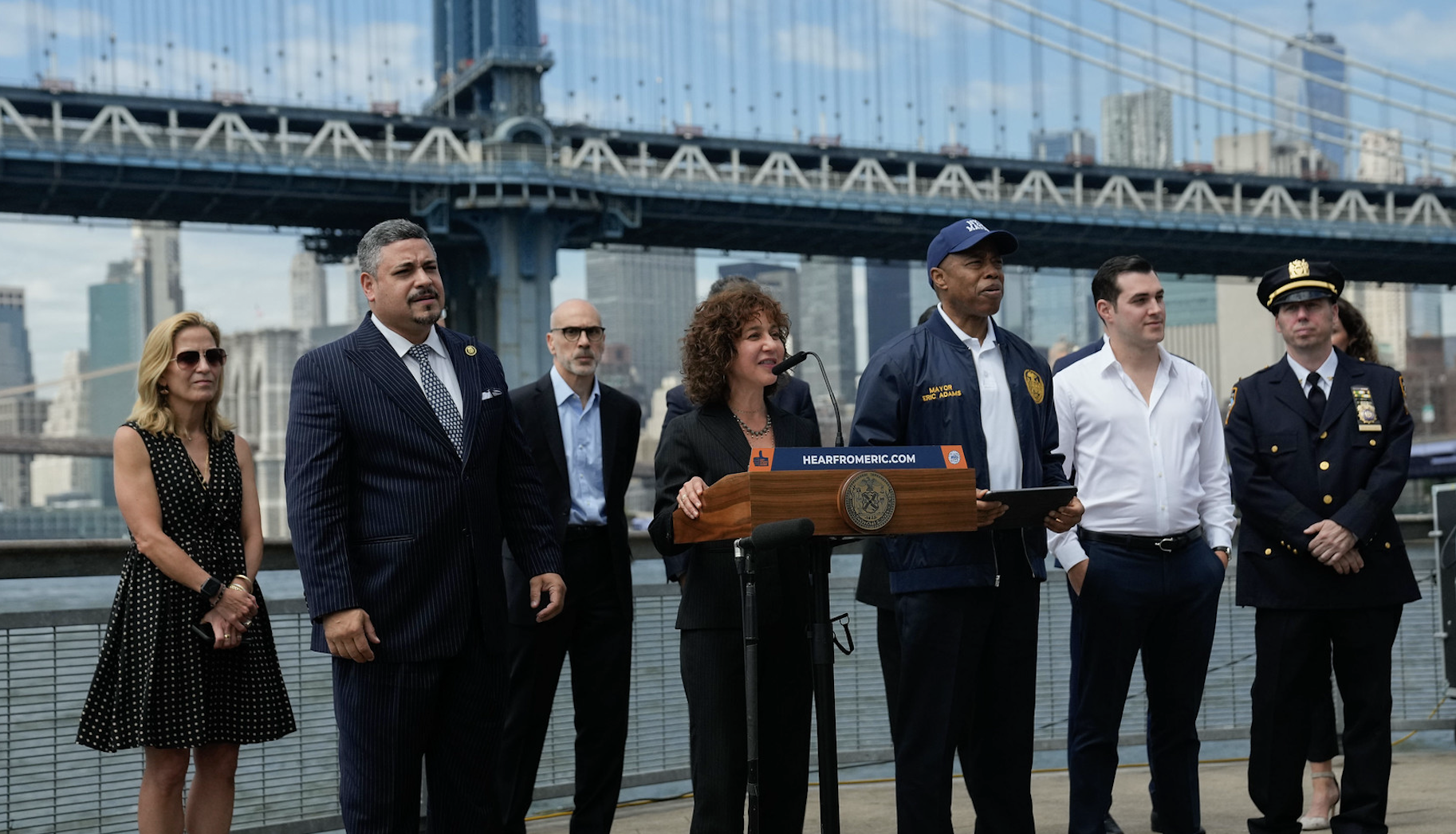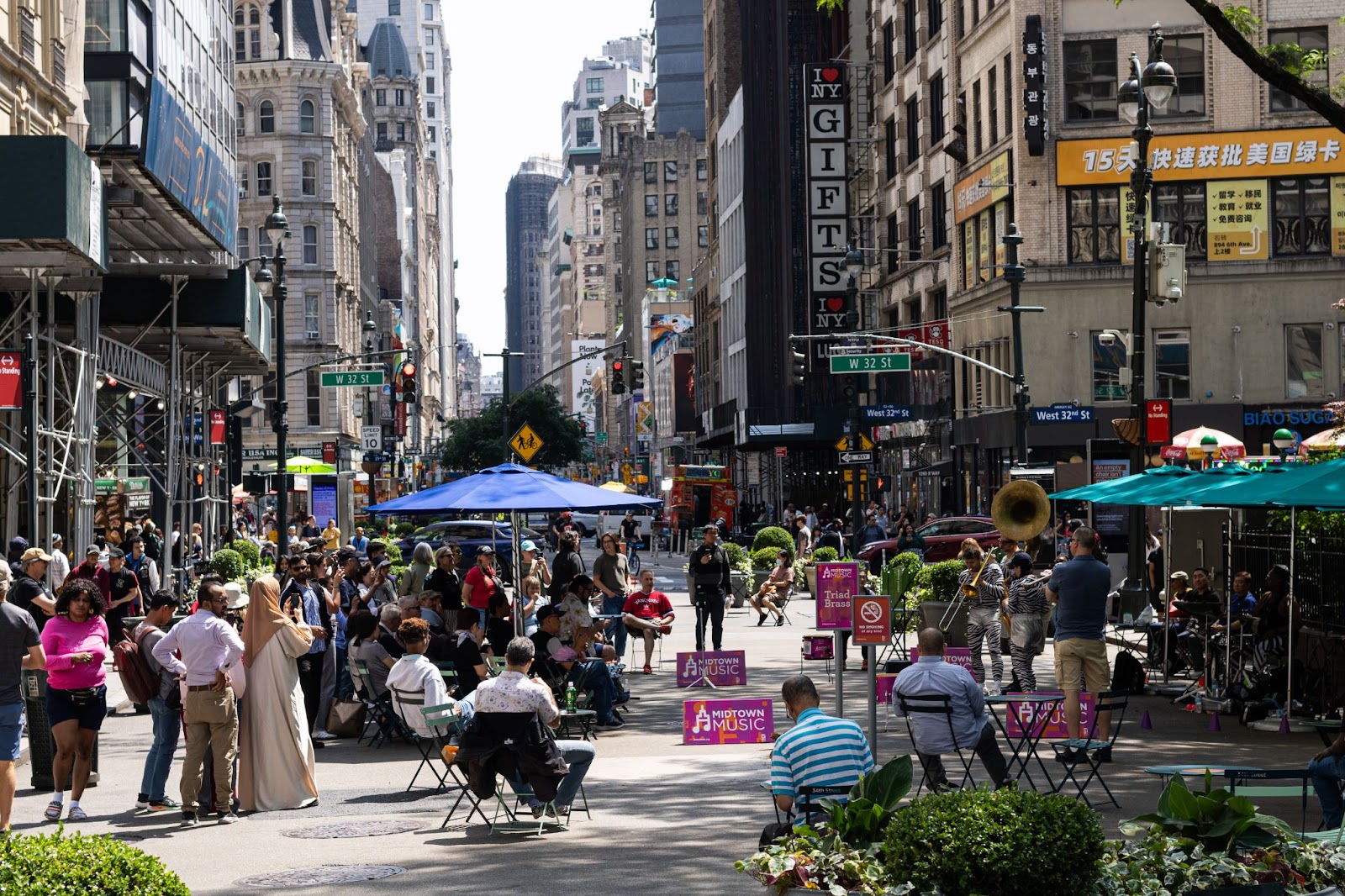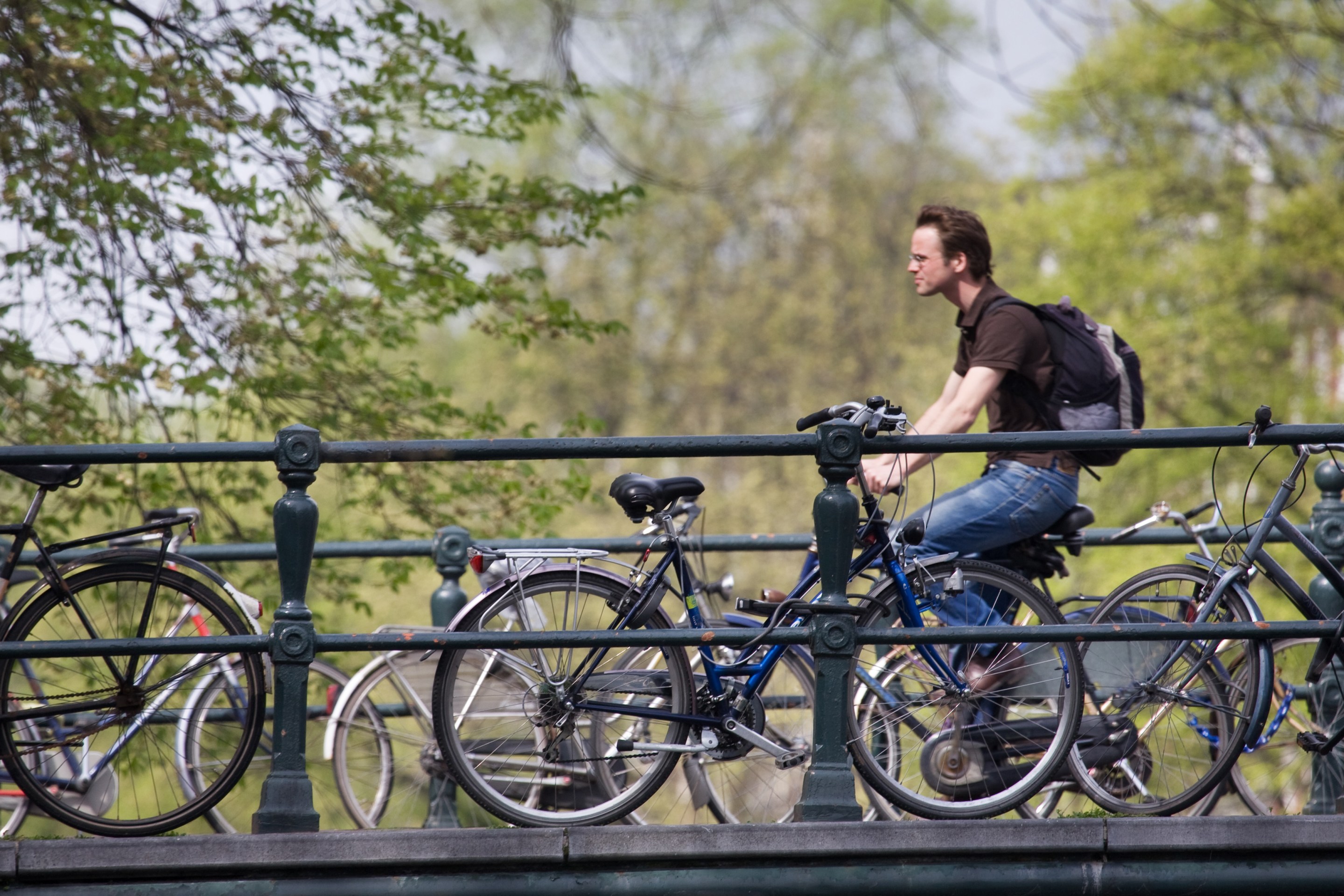DOT is launching a pilot program to reserve on-street parking spaces for car-share services, which got an advance write-up in the Times today. By reserving 285 spots for car-share companies (230 on-street, according to the Times, plus 55 off-street spaces), the thinking goes, the city can make better use of curb space.
City Hall is pitching the program as a way to ease people out of owning personal cars. "There are just too many cars here," Mayor de Blasio said at a press event this morning. "There's a lot of people who have their car in a parking space all week long and really only need it on the weekend."
The program raises interesting questions about the impact of car-sharing in a majority car-free city like New York. Will easier access to car-share open up curb space as people abandon car ownership, or will any vacuum soon get filled by other car owners? Which will have a bigger effect on traffic: people who drive less because they give up their personal cars, or car-free people who drive more because they can use the car-share fleet?
All of that gets glossed over or buried in reporter Sarah Maslin Nir's piece in the Times, which frames the program as another burden on people who just want to store their cars on New York City streets for free.
The story hits all the motorist entitlement buttons. Street parking is a "blood sport," and by "cutting precious parking spots,” DOT is "taking away" space from car owners already besieged by “aggressive" parking enforcers, "unforgiving" tow truck drivers, and a city that -- out of sheer spite, it seems -- forces them to temporarily move their vehicles a few hours a week for street sweeping.
Cue the quote from AAA:
Beside the elimination of parking spaces, the program has also rankled some drivers over the decision to turn over public land to private companies -- even if it is just a patch of asphalt.
"You’re basically taking those spaces off the plate there for the public," said John Corlett, the legislative committee chairman for AAA, the automobile association. "It’s a valuable commodity they are handing over to a private, profit-making company." In fact, the city already has done something similar through its bike-sharing program, which is operated by a private firm.
So the natural order of things is to only give street parking away to those who can afford to own and maintain their own automobiles. Got it.
The fact is, New York City privatized this public space ages ago, when the city decided that the default function of the curb zone would be personal car storage. It was a decision that never benefitted the majority of New Yorkers who don't own cars. (The Times erroneously stated that in New York, "just over half of adults own cars," but the household car ownership rate is 45 percent, and the per capita car ownership rate among adults appears to be significantly lower.)
It's fair to question whether the city is serving the public interest in this arrangement with car-share companies -- hopefully the pilot program will produce data on car ownership and driving mileage that provides answers. But you can't say that the city is privatizing turf that was open to the public at large before. Most New York City curb space has been off-limits to most New Yorkers for generations.
